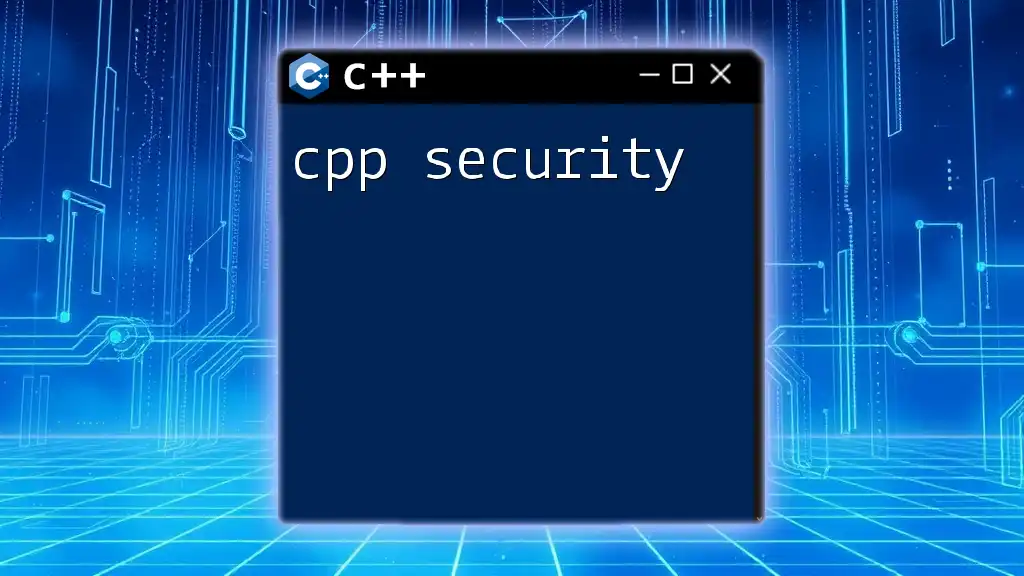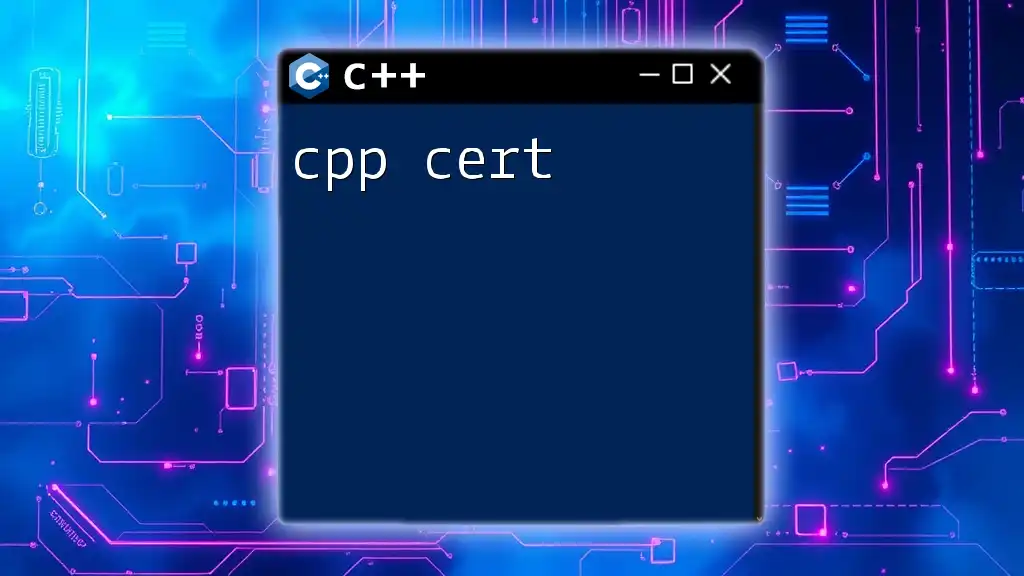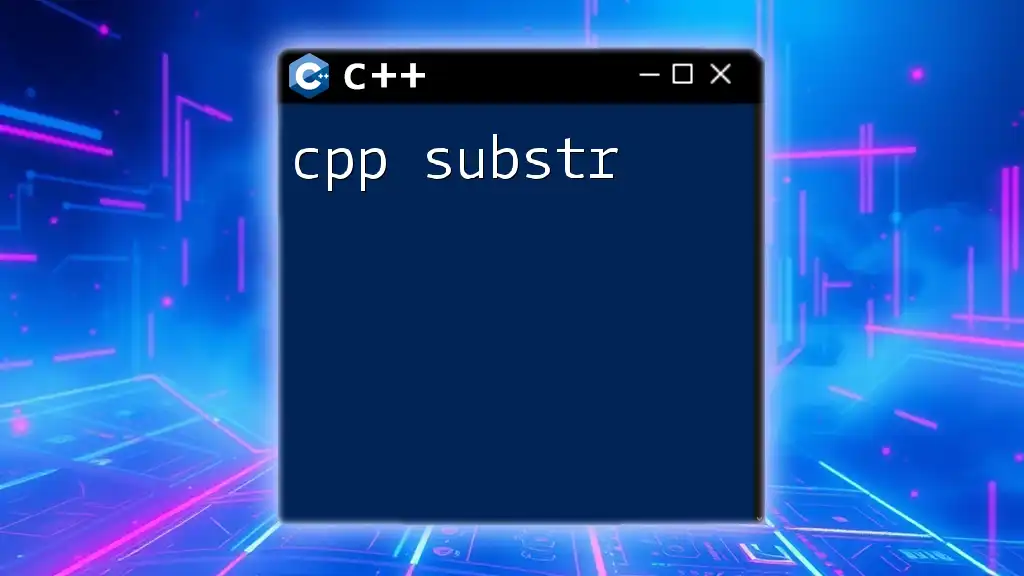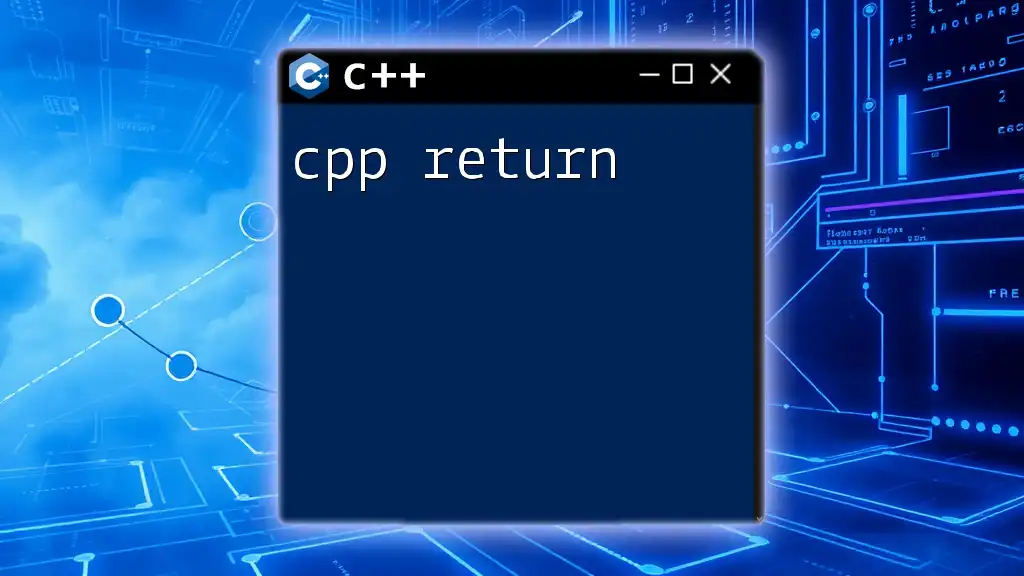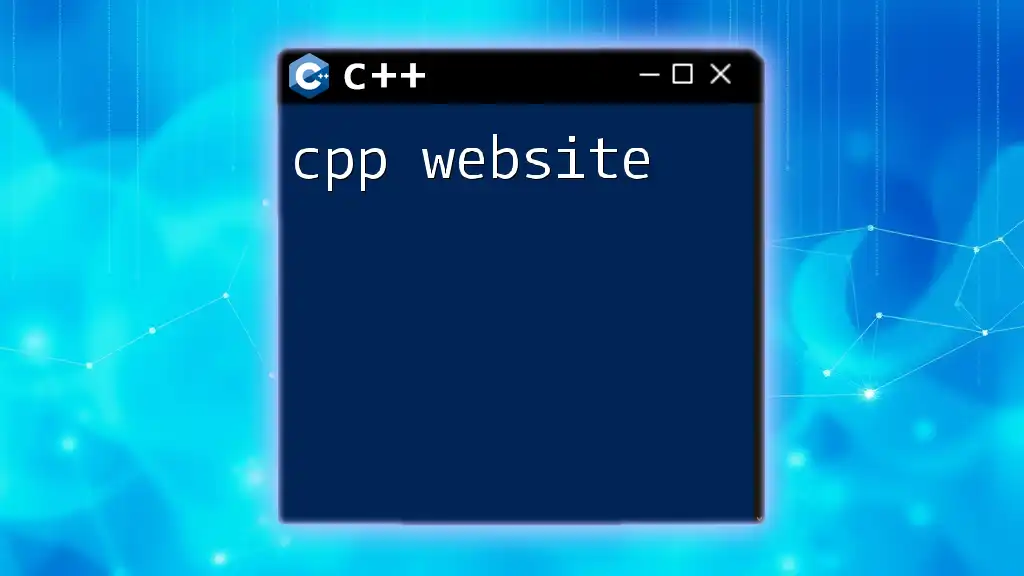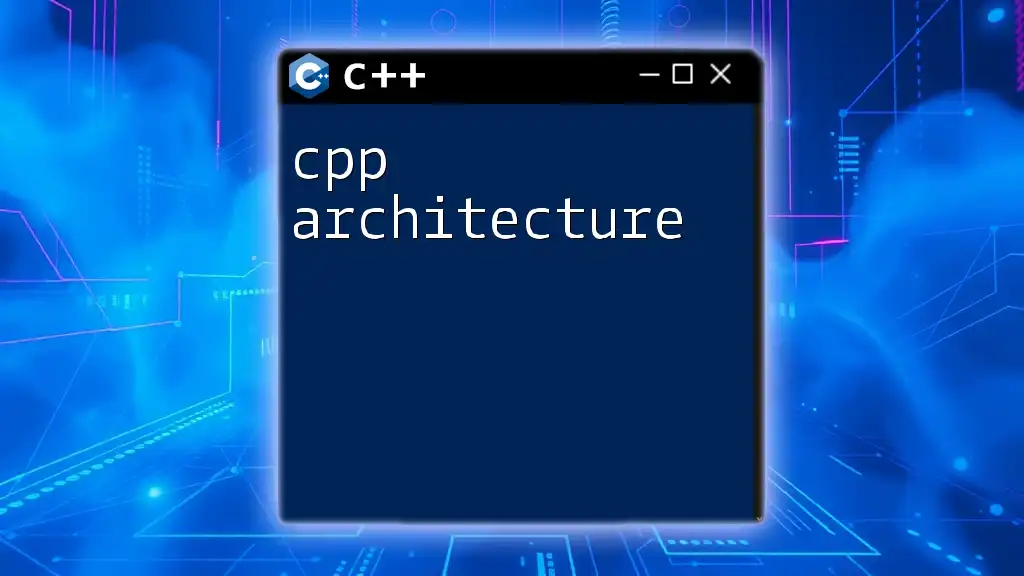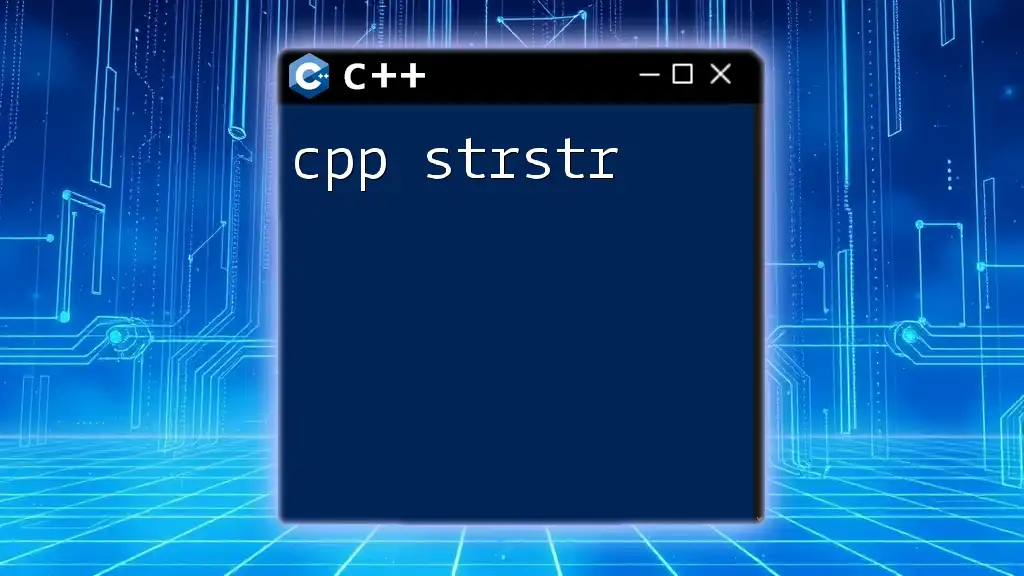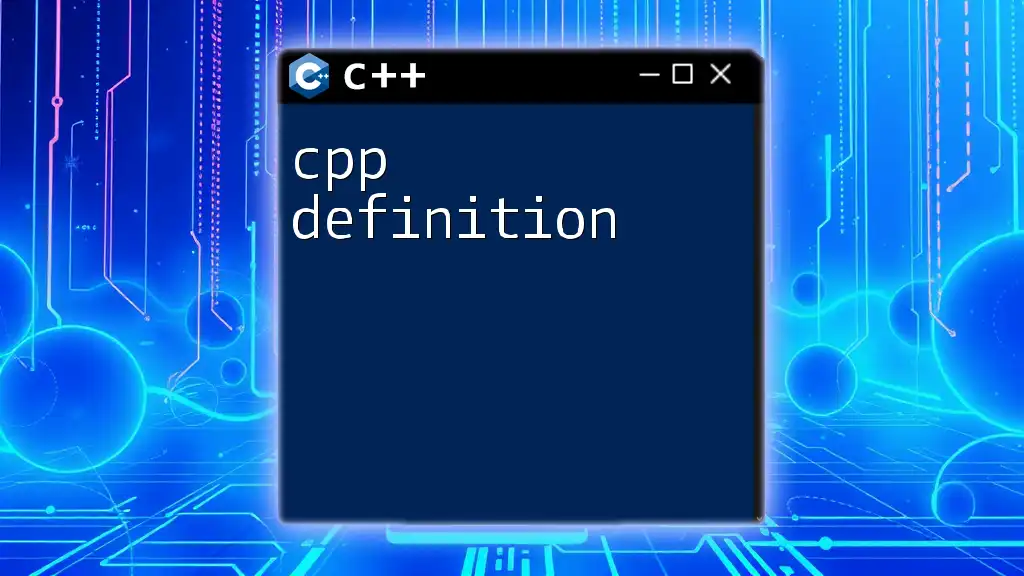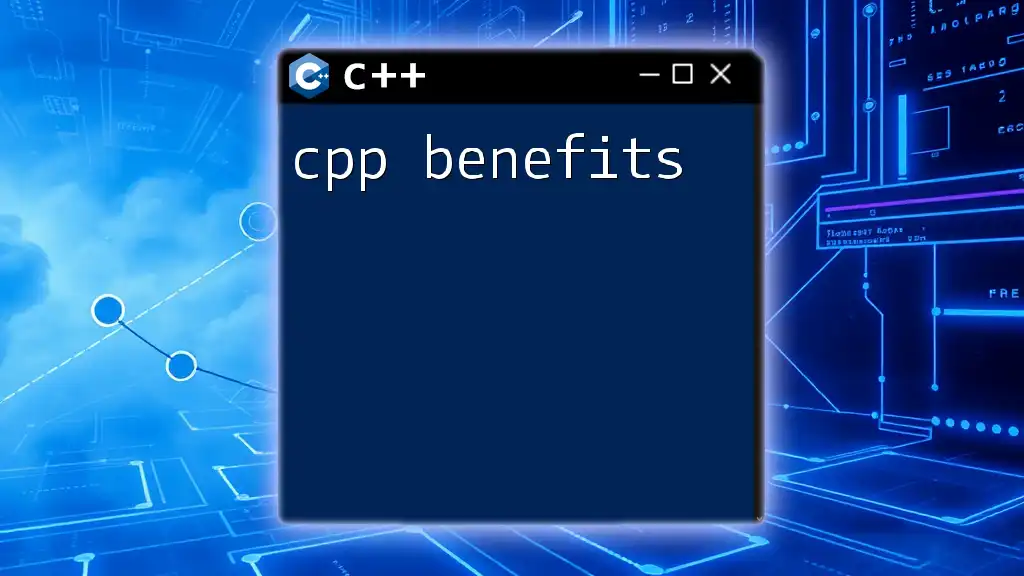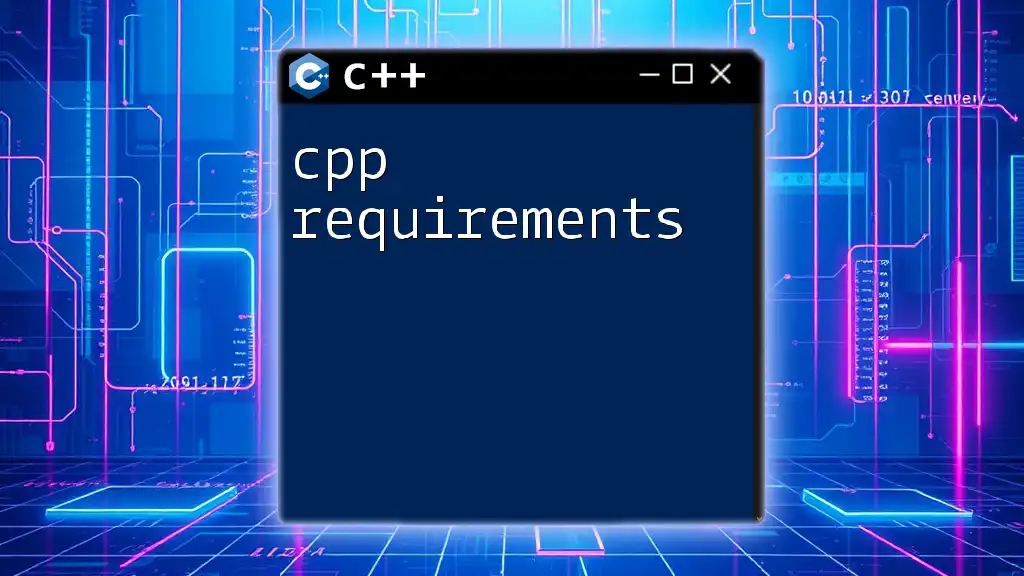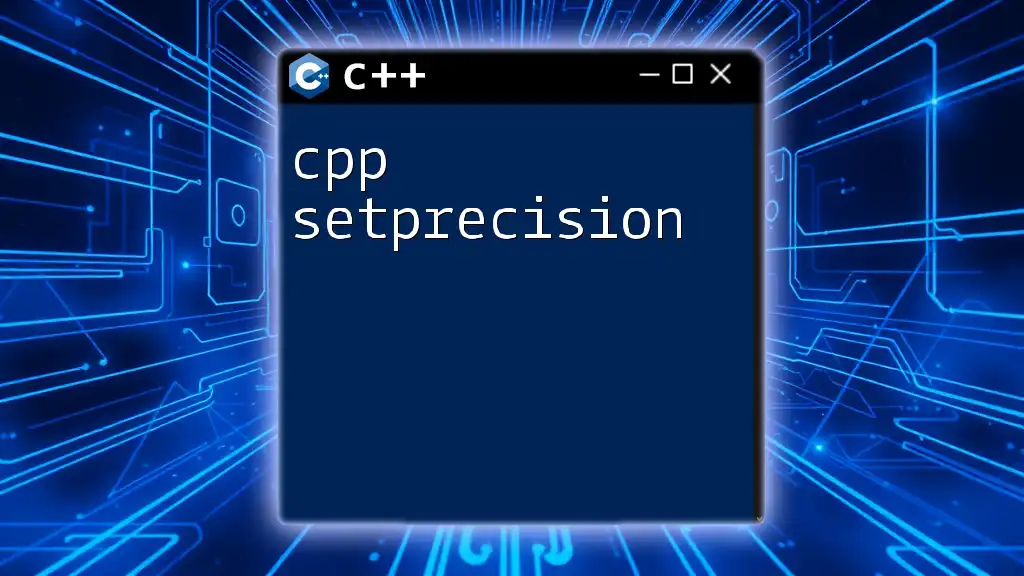C++ security involves implementing best practices and techniques to safeguard applications against vulnerabilities such as buffer overflows and injection attacks.
Here's a simple code snippet demonstrating the use of bounds checking to prevent buffer overflow:
#include <iostream>
#include <cstring>
void safeCopy(char* destination, const char* source, size_t destSize) {
// Use strncpy to prevent buffer overflow
strncpy(destination, source, destSize - 1);
destination[destSize - 1] = '\0'; // Ensure null termination
}
int main() {
char buffer[10];
const char* message = "Hello, World!";
safeCopy(buffer, message, sizeof(buffer));
std::cout << buffer << std::endl; // Output: Hello, Wor
return 0;
}
Understanding Common Security Risks
Buffer Overflows
Buffer overflows are a notorious vulnerability in C++ programming that occur when data exceeds the size limit of a buffer. This can lead to unexpected behavior, crashes, or the execution of malicious code. For instance, consider the example below:
#include <iostream>
#include <cstring>
void vulnerableFunction() {
char buffer[10];
strcpy(buffer, "This is a very long string!"); // Buffer overflow occurs here
}
In this code, the input string exceeds the allocated buffer size of 10 characters. Such vulnerabilities can be exploited by attackers to manipulate the program’s flow, including redirecting execution to malicious code, which is a significant security risk.
Memory Leaks
A memory leak occurs when a program allocates memory but fails to release it. This can consume significant system resources over time and may lead to denial of service. An example of a memory leak in C++ is as follows:
#include <iostream>
void memoryLeak() {
int* p = new int[10]; // Memory allocated
// Forgot to delete the allocated memory
}
When this function is called, the memory allocated for `p` remains unreachable, creating a leak. Consequently, if such leaks are pervasive in an application, they can degrade performance and eventually crash the program, making it essential for developers to actively manage memory.
Use After Free
The "use after free" error is another critical issue that arises when a program attempts to access memory that has already been freed. This can lead to unpredictable behavior or security vulnerabilities. Here is an example:
#include <iostream>
void useAfterFree() {
int* p = new int(5);
delete p; // Memory is freed
std::cout << *p; // Accessing freed memory
}
In this case, after the deletion of `p`, attempting to dereference it can yield garbage data or crash the program, opening the door for attackers to exploit this vulnerability.
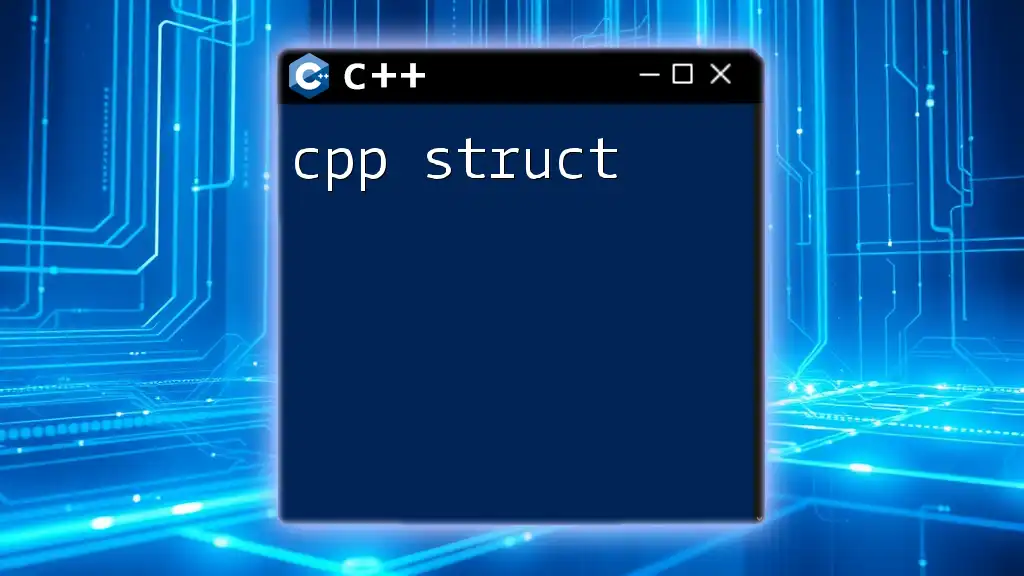
Secure Coding Practices
Input Validation
Input validation is crucial in preventing various types of attacks, such as buffer overflows or injection attacks. Ensuring that user input is properly validated can significantly enhance security. Consider the following example, which illustrates how to handle user input in a safe manner:
#include <iostream>
#include <limits>
void readInput() {
int number;
std::cout << "Enter a number: ";
while (!(std::cin >> number)) {
std::cin.clear(); // Clear invalid input
std::cin.ignore(std::numeric_limits<std::streamsize>::max(), '\n'); // Discard invalid input
std::cout << "Invalid input. Please enter a number: ";
}
}
This approach checks if the input is a number and prompts the user to enter a valid value, which can mitigate potential vulnerabilities stemming from incorrect data types.
Proper Memory Management
Adopting proper memory management techniques, such as using smart pointers (`std::shared_ptr`, `std::unique_ptr`), can help prevent memory leaks and enhance overall security in your C++ applications. Here is an example:
#include <iostream>
#include <memory>
void smartPointerExample() {
std::unique_ptr<int> ptr(new int(5)); // Memory is automatically managed
} // Memory automatically released when ptr goes out of scope
Using smart pointers ensures that dynamically allocated memory is safely released when it is no longer in use, reducing the risk of memory leaks and related security issues.
Exception Handling
Exception handling is vital for maintaining the integrity of a program, particularly when dealing with errors that can expose vulnerabilities. An effective use of exception handling is shown in the following example:
#include <iostream>
#include <stdexcept>
void safeDivision(int a, int b) {
if (b == 0) throw std::invalid_argument("Division by zero"); // Proper error handling
std::cout << "Result: " << a / b << std::endl;
}
In this code, an exception is thrown if there is an attempt to divide by zero, preventing the program from executing further and potentially causing unexpected behavior.
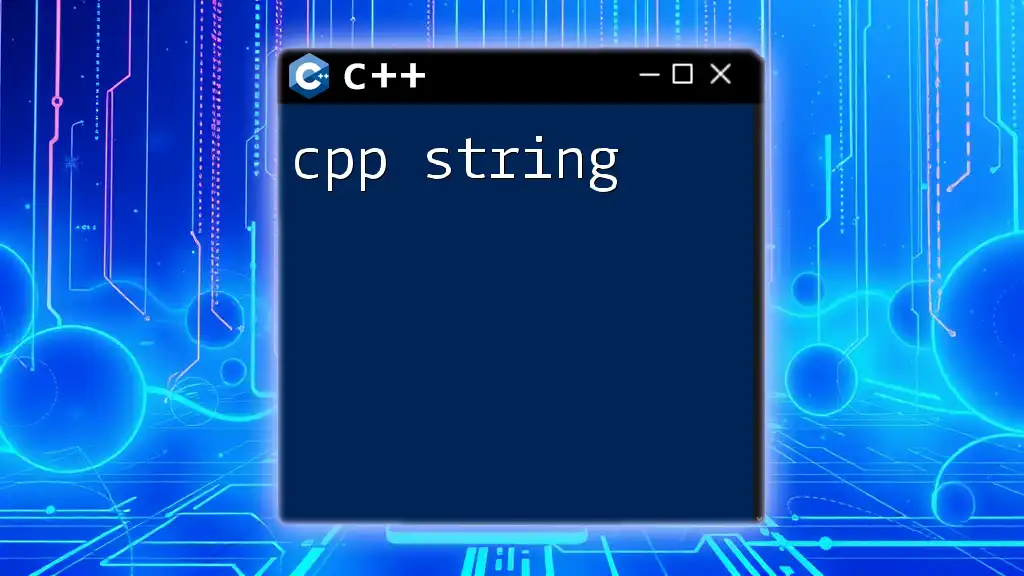
Advanced Security Measures
Static and Dynamic Analysis Tools
Utilizing static and dynamic analysis tools can greatly assist in identifying vulnerabilities before they become problematic. These tools analyze code both at compile-time (static) and runtime (dynamic), allowing developers to evaluate potential security weaknesses. Integrating tools like CPPcheck, Valgrind, or AddressSanitizer into the development pipeline can ensure code adheres to security best practices, ultimately building more secure applications.
Code Reviews and Pair Programming
Engaging in code reviews and pair programming fosters an environment of collaboration that can significantly enhance software security. These practices allow developers to evaluate one another's code for potential security weaknesses and to enforce secure coding standards. It is important to focus on commonly vulnerable areas during reviews, such as buffer handling and error checking. Furthermore, pair programming can create immediate encouragement to adhere to secure coding practice as developers work together to write and test code.
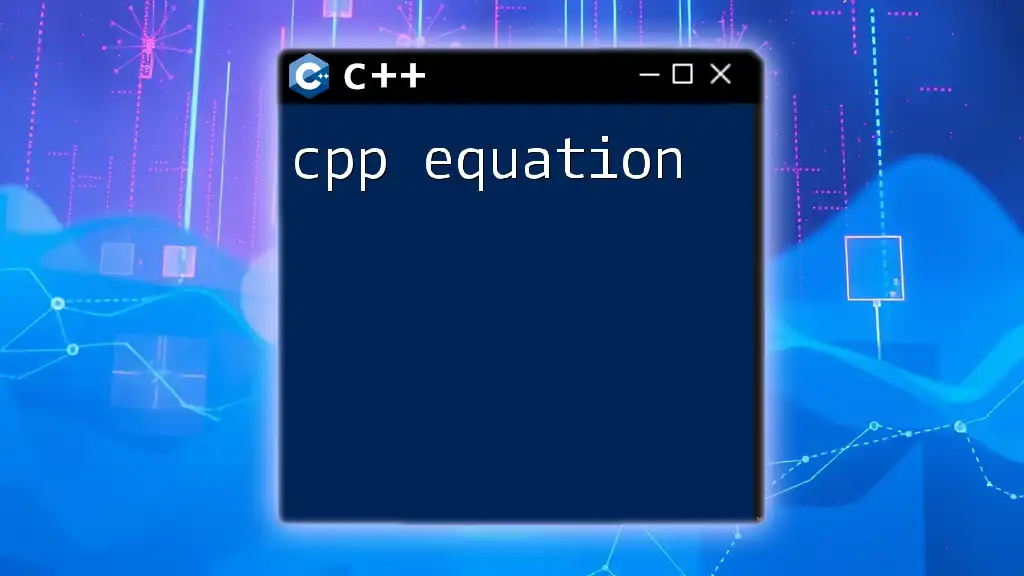
Adopting Security Standards
Common Security Standards
Following established security standards, such as the OWASP C++ guidelines, can aid in crafting robust and secure code. These standards offer a comprehensive approach to identifying risks specific to C++ development and provide best practices for mitigating them. For example, adhering to the guidelines on secure memory handling can help prevent buffer overflows and memory corruption.
Continuous Security Testing
Implementing continuous security testing through regular unit tests can catch vulnerabilities early in the development process. Unit testing should involve testing edge cases and error conditions rigorously. Conduct tests on functions that handle critical operations (e.g., input processing and data parsing) to ensure they behave as expected under all conditions.
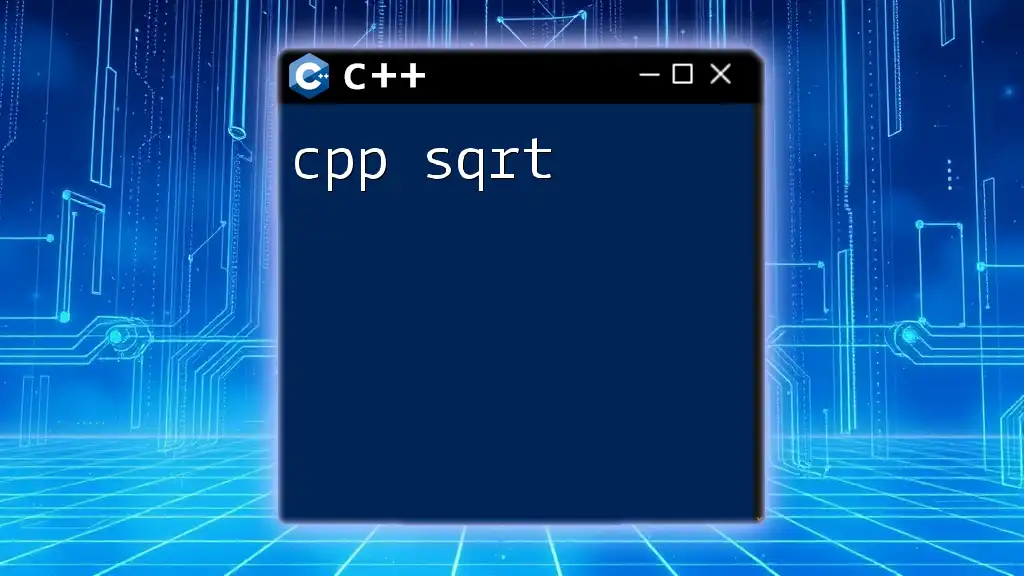
Conclusion
This guide outlines the fundamental principles of C++ security, emphasizing the importance of understanding common vulnerabilities, implementing secure coding practices, and utilizing tools and standards to bolster security. By taking proactive steps towards secure software development, programmers can protect their applications from potential threats, ensuring a safer and more reliable user experience. Continuous learning and adherence to best practices are essential in the ever-evolving landscape of software security.

